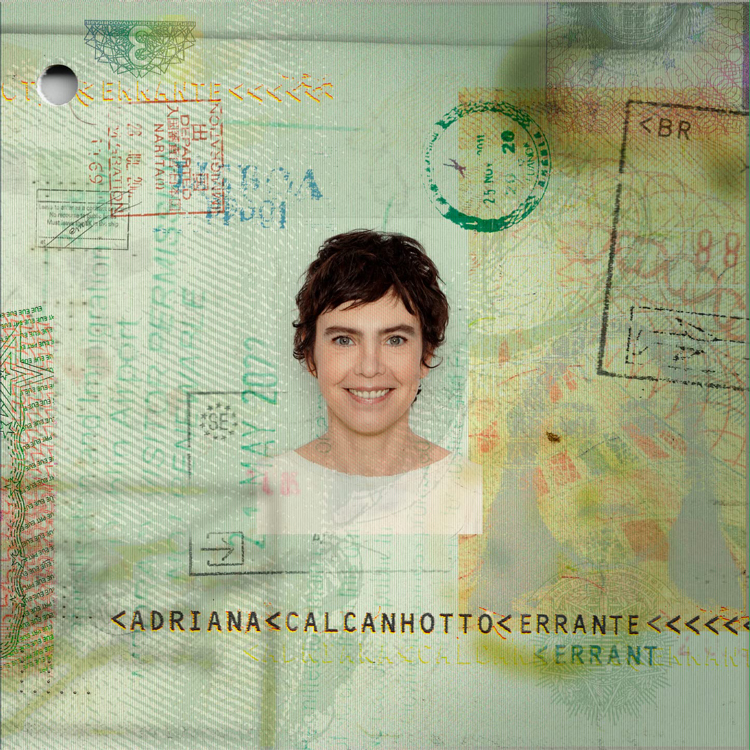Adriana Calcanhotto – Errante (Modern Recordings, 2023)
Adriana Calcanhotto’s 13th studio album, Errante, present a wide range of styles. From bossa nova to samba-canção, xote, maxixe, samba-de-roda, rock, pop, and funk carioca, she covers it all. The topics are just as diverse, touching on love, its end, flirting, loss, mourning, and self-reflection.
Having faced the challenges of recording Só during the Corona lockdown, Adriana now embraces a more outgoing vibe in Errante. The album, marked by joyous songs, indicates her refusal to follow a single path. In the percussive opening track, “Prova dos Nove,” she muses about her mixed identity, feeling uprooted yet finding roots in her wanderings.
Throughout the album, Adriana weaves a complex mix of influences, drawing from Brazilian music traditions, poetry, and even quoting literary figures like Oswald de Andrade and Luís de Camões. She takes pride in her diverse roots, from the black diaspora in funk carioca to Sephardic Jewish family heritage. The guitars she plays have historical significance, once belonging to Nara Leão and Orlando Silva.
Adriana’s choice to “err” takes on a dual meaning of walking aimlessly and making mistakes, embracing the modernist choice of joy. The recording sessions at Rocinante studio became a reunion with fellow musicians, a welcome change after the isolation of the COVID-19 pandemic.
The singer and guitarist teamed-up with trusted musicians who are steeped in the various traditions of Brazilian music, yet no less familiar with contemporary styles: Alberto Continentino (bass, piano, and lyre), Davi Moraes (electric and acoustic guitars), Domenico Lancellotti (drums and percussion). This is the very same band that, in 2011, had already appeared on her Latin Grammy-nominated album O Micróbio Do Samba. In addition, a horn section made up of Diogo Gomes (trumpet), Jorge Continentino (woodwinds), and Marlon Sette (trombone). On “Lovely”, the album’s only song with English lyrics, they are joined by special guest Rodrigo Amarante.
Buy Errante.


